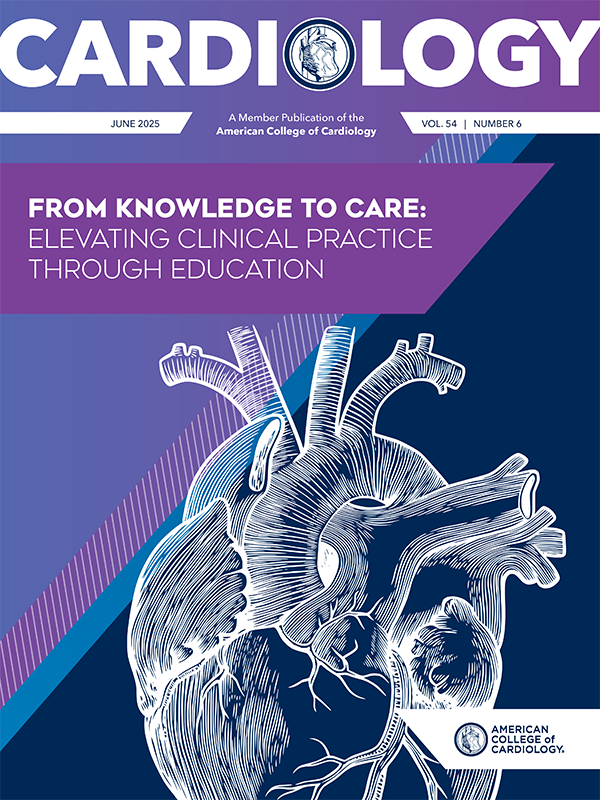Heart of Health Policy | Innovative Strategies, Playbook Tactics Drive CV Care; ACPC Council and Prior Authorization

Innovative Strategies and Playbook Tactics Drive Forward-Thinking CV Care
A wide-ranging agenda blending traditional care models with emerging strategies to redefine cardiovascular delivery across the continuum – from the exam room to the ambulatory surgery center (ASC) – was at the heart of MedAxiom's Spring CV Transforum.
John P. Erwin III, MD, MBA, MACC, kicked off the meeting with an energetic plenary that drew parallels between high-functioning sports teams and multidisciplinary health care units. Using lessons from the gridiron, Erwin emphasized how trust, communication and adaptability can drive exceptional performance in high-pressure environments like cardiology. He offered actionable guidance on cultivating resilience and aligning diverse team strengths to deliver patient-centered care through cohesive collaboration.
Operational efficiency and innovation were also key themes throughout the event. In a robust discussion led by Vimal Ramjee, MD, participants explored how cardiovascular care is increasingly shifting beyond hospital walls. With a focus on expanding access through ambulatory programs, including cardiac PET, CT and ASCs, he provided a roadmap for adopting cutting-edge technologies and artificial intelligence tools responsibly, maximizing impact without compromising quality.
Expanding on this theme, panels on ASC development offered real-world insights from health care leaders who shared lessons learned in launching and scaling outpatient centers. From ownership models to procedure types, panelists discussed how these centers are transforming patient experience and expanding procedural capacity.
Meanwhile, Jacob Corbell, MBA, tackled a common pain point: improving patient access. His session provided frameworks to reduce appointment delays and streamline practice workflows, offering realistic tactics to boost efficiency while preserving physicians' time for care delivery.
Other sessions addressed vital back-end components of successful cardiovascular programs. From avoiding pitfalls in prior authorizations, to optimizing staffing strategies and enhancing revenue integrity, experts emphasized the need for robust administrative strategies to sustain financial performance and access. One session also focused on opportunities to expand the roles pharmacists play in ambulatory cardiovascular care – both clinically and financially.
Leadership models and workforce sustainability rounded out the event. Sessions on dyad leadership underscored the power of physician-administrator collaboration, while a generational leadership panel discussed change management, physician burnout and creative strategies to attract the next generation of cardiologists.
Visit MedAxiom.com for conference highlights and to register for the Fall CV Transforum taking place Oct. 16-18 in Austin, TX.
ACPC Section Council Takes Aim at Prior Authorization
The process of prior authorization (PA) has long stood as a required and cumbersome gatekeeper in the health care delivery system, particularly in the realm of congenital heart disease (CHD). The necessity for authorization before the provision of care can delay initial assessment and treatment, frustrate clinicians and families of the patients, and compound the administrative load on health care systems already under strain. In the context of CHD, the impact is profound, affecting a vulnerable population that can require timely and efficient care management.
Recognizing the criticality of this issue, the Advocacy Workgroup of the ACC's Adult Congenital and Pediatric Cardiology (ACPC) Section has worked to document challenges and propose solutions, including reaching out to a large PA vendor to openly discuss concerns related to assessing and addressing congenital heart patients. These discussions and correspondences highlighted the differences between adult and pediatric congenital cardiology, coverage policy criteria, and request approval and denial rates for echocardiography.
More recently, several national insurance companies such as CIGNA and UnitedHealthcare (UHC), have taken steps to reduce the burden of PA, including decreasing volume of tests and procedures requiring PA and implementing gold card programs that exempt certain clinicians from the requirements for a period of time.
In 2023, the companies released procedure code removal lists by health plan types (Medicare Advantage, Medicaid, and Individual Exchange) and, importantly, UHC Commercial and Community Medicaid plans removed prior authorization rules for some congenital echocardiogram codes. For the CHD population, UHC's decision to remove PA for selected echocardiograms is a monumental shift given their indispensable use in the diagnosis and management of congenital cardiac anomalies. It also sets an example for other payers to improve access to care by taking steps toward decreasing administrative burden and ensuring more time for patient care.
While these announcements have been met with a collective sigh of relief from the health care community, there is still room for further reforms. The ACPC Advocacy Workgroup continues to work with other insurance companies to ensure similar changes, while also stressing the importance of ongoing education, advocacy and clinician education. As more insurers observe and potentially emulate UHC's lead, there is cautious optimism for a future where PA processes are no longer a barrier but a facilitator of high-quality, timely care for all, especially those with congenital heart disease.
ACC Section Members Urge Congressional Action to Improve Maternal Health
Members of the ACC's Reproductive Health and Cardio-Obstetrics Member Section took to Capitol Hill virtually last month, meeting with representatives from 11 congressional offices to push for stronger federal action on maternal health. Specifically, they urged lawmakers to co-sponsor and publicly support three key bills aimed at improving outcomes for mothers nationwide: the Preventing Maternal Deaths Reauthorization Act (H.R. 1909), the Connected MOM Act (S. 141), and the Rural Obstetrics Readiness Act (H.R. 1254/S. 380).
"Implementing better systems of care, supported by legislation, can help reduce care inequities during and after pregnancy," said Malamo Countouris, MD, FACC, co-chair of the Section's advocacy workgroup. "I hope that lawmakers see that they can make a difference."
The Preventing Maternal Deaths Reauthorization Act would reauthorize and strengthen funding for Maternal Mortality Review Committees (MMRCs), which collect data on maternal deaths and outcomes and recommend solutions to improve quality of care.
"MMRCs are an essential part of understanding why women are dying related to pregnancy and inform best next steps to addressing and reducing the chance of maternal deaths," said Countouris. "A cardiologist is a key member of the MMRC and these members and the reporting should be standardized." While discussing the Connected MOM Act – which would require the Centers for Medicare and Medicaid Services to issue coverage recommendations on devices that remotely monitor vitals such as blood pressure and glucose levels – Section members emphasized that expanding access to these tools can help address complications early, thereby reducing emergency visits and maternal deaths.
With more than half of U.S. counties lacking hospital-based obstetric care, improving access to care in rural areas was another important part of the maternal health discussion. Section members were able to share firsthand how the Rural Obstetrics Readiness Act would equip rural facilities with the training, tools and technology needed to respond to obstetric emergencies, including those that are cardiac-related.
By advocating for these bills, the Section is supporting ACC Advocacy in its efforts to improve the obstetric care and maternal health of patients throughout the U.S. ACC members looking to help support these efforts can stay informed about bills and initiatives at both the federal and state level with ACC Advocacy and their respective ACC State Chapters.
Visit ACC.org/Advocacy to learn more about how ACC Advocacy is championing access to care for all.

CMS Proposes Changes to TEAM, Upcoming Mandatory Inpatient Project
The Centers for Medicare and Medicaid Services (CMS) announced several proposed changes to the Transforming Episode Accountability Model (TEAM) in the fiscal year 2026 Inpatient Prospective Payment System (IPPS) proposed rule.
Slated to begin Jan. 1, 2026, TEAM would require all acute care hospitals located within the CMS-selected Core-Based Statistical Areas to participate by testing episode-based payments for CABG and several other orthopedic and surgical procedures, including lower extremity joint replacement, surgical hip femur fracture treatment, spinal fusion and major bowel procedure.
The ACC is reviewing the IPPS proposed rule and will share feedback with CMS. Read more on how the College reviews and responds to agency proposals.
Currently, there are 735 mandatory and 10 voluntary hospitals set to participate in the model. Participating hospitals would receive a target price to cover all costs associated with a 30-day episode of care and be required to refer patients to primary care services to support continuity of care and drive positive long-term health outcomes.
Changes introduced by the IPPS proposed rule include:
- Establishing participation rules for new and reorganized hospitals within the CMS-selected Core-Based Statistical Areas.
- Adding the Information Transfer Patient Reported Outcome-Based Performance Measure (Information Transfer PRO-PM).
- Applying a neutral quality measure score for TEAM participants with insufficient quality data.
- Using a 180-day lookback period and Hierarchical Condition Categories (HCC) version 28 for beneficiary risk adjustment.
- Removing Health Equity and the Decarbonization and Resilience Initiative components of the model.
In addition to these proposed policies, CMS is also seeking comments regarding low volume hospitals and the primary care services referral requirement.
Clinical Topics: Congenital Heart Disease and Pediatric Cardiology, Congenital Heart Disease, CHD and Pediatrics and Quality Improvement
Keywords: Cardiology Magazine, ACC Publications, Delivery of Health Care, Heart Defects, Congenital, Health Communication, Prior Authorization, Health Policy, Quality of Health Care, Cardio-Obstetrics, Maternal Health, Reproductive Health, Pediatric Cardiology, Centers for Medicare and Medicaid Services, U.S., Inpatients, Prospective Payment System

